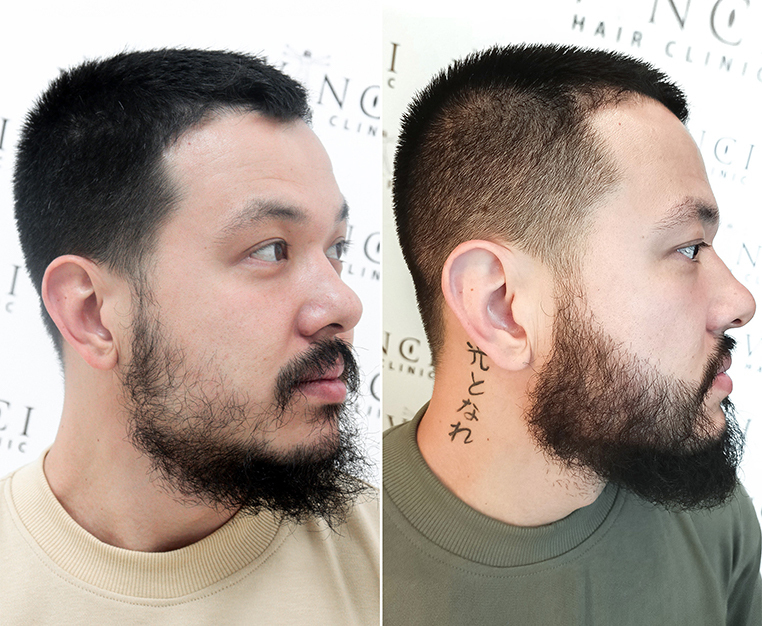The recent events at the Oscars focused our attention on hair loss and alopecia, the medical term for hair loss. The comedian Chris Rock cracked a bad joke about Jada Pinkett Smith’s shaved head, a hairstyle she adopted in response to alopecia. Her husband, Will Smith, took offence and slapped him.
According to National Health Service (NHS) statistics, over eight million women in the UK are affected by alopecia. The condition often leads to a loss of confidence and self-esteem.
Pinkett Smith is a Hollywood star who appears to have no problem going out with a shaved head, but not everyone would be comfortable doing this; the condition isn’t experienced by everyone in the same way. The questions that arise are straightforward: what is alopecia and can it be treated?
Understanding Alopecia
Alopecia is a condition that entails losing hair from all over the body, not just the head. The American Academy of Dermatology Association (AADA) categorises it into three types, determined by the extent of hair loss and the parts of the body it affects:
- Alopecia totalis is the loss of all hair from the scalp.
- Alopecia universalis is a rare condition involving the loss of hair from all over the body.
- Alopecia areata is when hair is lost in patches from the scalp, eyebrows, beard area, armpits and even ears.
This condition arises when our immune system attacks itself, making it an auto-immune disease. Baldness is the single symptom that characterises alopecia. Hair loss can be a side effect of other conditions like thyroid disorders or treatments like chemotherapy, but with alopecia, it’s the primary diagnosis.
What Are the Causes of Alopecia?
The factors causing alopecia differ from person to person, as the auto-immune disease can result from genetic or non-genetic factors or a combination of both. The immune system attacks the follicles responsible for hair growth in different parts of the body, leading to bald patches of varying sizes.
Genetics may account for many cases, but other factors are to blame too. Stress, tight hairstyles, poor diet, and harmful haircare products can all trigger alopecia, and the chances of experiencing it increase with age.
Diagnosing the precise cause of hair loss is sometimes difficult. For instance, Pinkett Smith admitted that even though she went through several medical tests, none of them could pinpoint exactly what caused her hair loss, though stress seemed to be the most likely factor.
How Widespread is Alopecia?
Fifteen in every 10,000 people in the UK are thought to be affected by alopecia areata, according to studies. Both genders have an equal risk of losing hair from this condition in adolescence or adulthood.
Research conducted in 2018 found that alopecia areata was more common in black and Hispanic women than in white women. Besides Pinkett Smith, other celebrities such as Viola Davis, have lost their hair due to alopecia. The condition often manifests in the form of female or male pattern baldness.
What Treatments Are Used For Alopecia?
Even though there is no cure for alopecia areata, the condition can be treated to reduce its effects. There are four main treatments:
- Corticosteroids are anti-inflammatory drugs that can be taken orally, topically or through injections into the scalp.
- Minoxidil is widely used for hair loss and can stimulate hair growth in patchy areas.
- Finasteride is used mainly to treat hair loss in men. It reduces the shrinking of hair and boosts its growth.
- Laser therapy is probably the simplest to apply. By using a laser cap for a few minutes a day, you can stimulate hair growth in areas affected by alopecia and even speed up healing after hair transplantation.
The effectiveness of all these treatments depends upon your ability to identify the cause of your hair loss and then choose the proper treatment for it. For instance, if stress is the main cause of your hair loss, finding ways to bring your stress levels down will also help with hair loss.
If your hair loss is due to malnourishment, hormonal changes or side effects of another treatment, you should consult with medical experts who can prescribe you a suitable treatment. Just keep in mind that this requires patience. As the AADA says, “There are many treatments for alopecia areata, but no single treatment has been shown to work for everyone.”
Final Thoughts
Like any other type of condition, alopecia has different causes, many of which are treatable. Dietary improvements, lifestyle changes or even types of medications may all be effective measures depending on the severity of your hair loss.
Choosing the right kind of treatment is critical, and to do this you may need help. Vinci Hair Clinic offers a free consultation with one of our hair experts to all our new clients. Simply get in touch with us and schedule your appointment!


